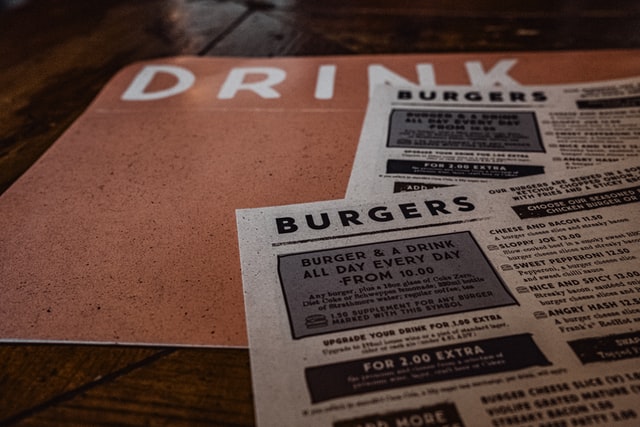To fight obesity, large catering businesses in the United Kingdom are required to include the calories of every dish on the menu from this month. But Belgian dieticians believe that this is not a good idea, and stress that healthy eating is more than counting calories.
As of early April, new legislation came into force in the UK large pubs, restaurants and catering chains: they are now obliged to display the calories information on menus, online menus, third party apps, food delivery platforms and food labels at the point a customer is making their food and drink choices.
"It is crucial that we all have access to the information we need to maintain a healthier weight, and this starts with knowing how calorific our food is," said UK Public Health Minister Maggie Throup. "We are used to knowing this when we are shopping in the supermarket, but this is not the case when we eat out or get a takeaway."
In addition to listing the calories for each food item, menus and labels will also need to include daily recommended calorie needs. According to the UK Government, almost two-thirds (63%) of adults in England are overweight or living with obesity, and 40% of children leave primary school overweight or obese.
Related News
- EU wants to put calories in drinks on alcohol bottles
- Brussels start-up takes calorie counting to a local level
- Belgium is EU leader when it comes to consuming sugary drinks
The UK is not the first country to implement such a measure: in the United States – where obesity is also widespread – the rule has been in place for large restaurant chains and pizzerias since 2018.
While obesity has also long since ceased to be an exception in Belgium (about half of Belgians are overweight, and 16% are obese), nutritionists and dieticians are not convinced that displaying calories on the menu is the way to fight the issue.
"The measure has good intentions, but healthy eating is of course about much more than calories, and certainly about much more than calories in a restaurant," said Sanna Mouha, a dietician at the Antwerp University Hospital (UZA) on Flemish radio.
A restaurant should be something "fun and relaxing," and is "a safe zone" for many people, according to her. "You do not want to be counting calories there. The majority of the time, people eat at home or at work. That is where it is good to watch your diet, not so much at a restaurant."
Additionally, Mouha fears that this constant confrontation with calories is also "disastrous for people with eating disorders." A menu with calories could be provided as an option, she suggested, "for people who are watching their calorie intake, or want to pay attention to it."
Trust your gut
While the measure is far from perfect, obesity expert at the UZ Leuven Bart Van der Schueren recently told De Morgen that it could "certainly be useful" and "be a good first step."
"By mentioning [the calories of a dish], you are sure that everyone has that information. That is just the point: in the socio-economically higher group where obesity is rarer, nutrition knowledge is usually also better," he said. "But those you want to reach are mainly people from difficult socio-economic backgrounds. And that works if you just state the number of calories."
Still, Mouha said that there are other, better solutions for getting people to eat more healthily in restaurants. "It would be great, for example, if it were more accessible to order extra vegetables. But that would then also have to be a bit cheaper than it is today."
Asking for a doggy bag to take home the food that you did not eat should also become more normal in Belgium. "And the portions could be smaller: now you can often choose between a normal portion or a children's portion, but something in between does not exist."
"Eating is more than just calories," Mouha stressed. "We want people to eat more healthily, to listen more to their gut feeling – literally and figuratively – and to stop when they are no longer hungry."

